Question And Answer
Publications
Articles, publications, books, tools and multimedia features from the U.S. Institute of Peace provide the latest news, analysis, research findings, practitioner guides and reports, all related to the conflict zones and issues that are at the center of the Institute’s work to prevent and reduce violent conflict.
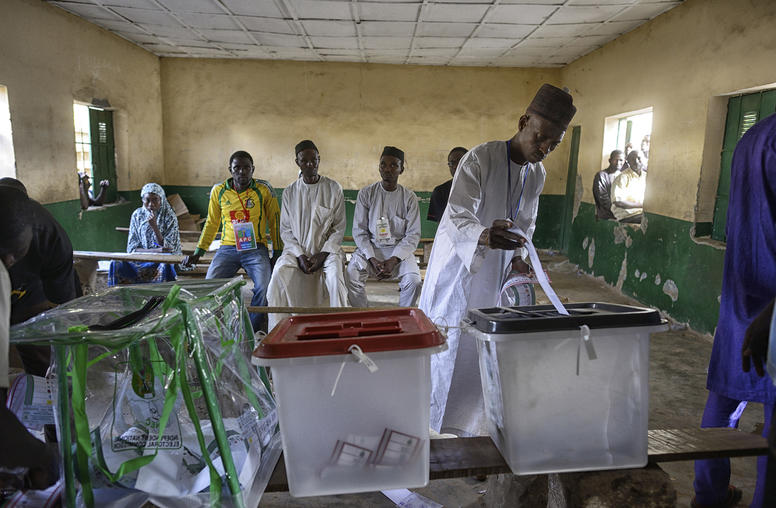
What’s at Stake in Nigeria’s 2019 Elections?
On Saturday, over 84 million eligible Nigerian voters are set to go to the polls to elect their next president and members of the National Assembly, with state-level elections to be held on March 2. Among the 73 presidential candidates, incumbent Muhammadu Buhari and former Vice President Atiku Abubakar are the top two contenders. As Africa’s most populous country with its biggest economy and democracy, Nigeria is a bellwether for the continent and these elections will be widely watched by the region and international community. USIP’s Oge Onubogu, Chris Kwaja and Aly Verjee look at why these elections matter, security challenges surrounding the polls, and how the U.S. can support Nigeria beyond the elections.

Oge Onubogu on Nigeria’s Elections
As Africa’s most populous country with its biggest economy, Nigeria is a bellwether for the continent. On Saturday, Nigerians will go to the polls to elect their next president and members of the National Assembly. This critical election will be a test of the resilience of Nigeria’s democratic institutions and widely watched by the international community, says USIP’s Oge Onubogu.
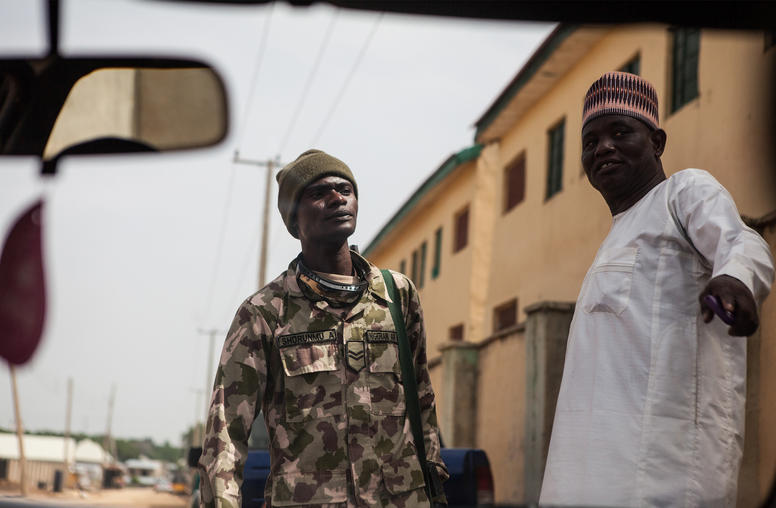
Civilian-Led Governance and Security in Nigeria After Boko Haram
Focusing on northeast Nigeria and the Lake Chad Basin, this Special Report outlines the rise of the Boko Haram insurgency in Nigeria and the security and governance challenges in the wake of its possible decline.
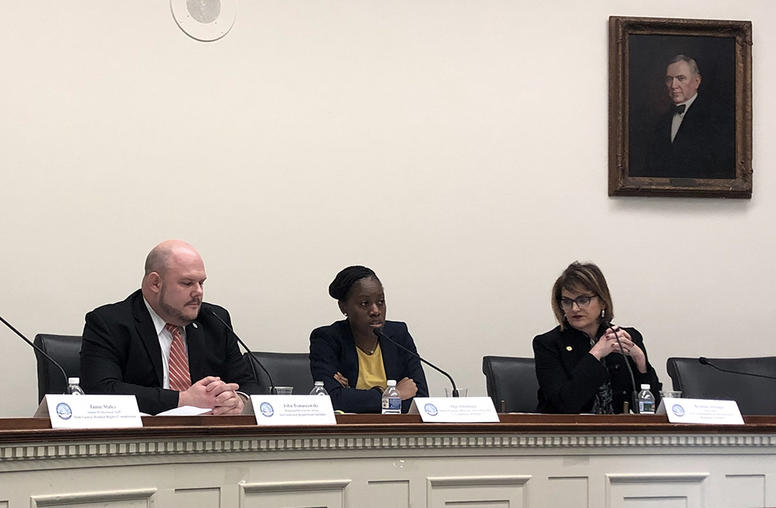
Nigeria: Elections and Human Rights
Nigeria’s keenly anticipated presidential and national assembly elections are scheduled for February 16, 2019, while the elections for state governors and state assemblies are scheduled for March 2, 2019. These elections come 20 years after the restoration of democratic, multiparty constitutional rule in Nigeria.
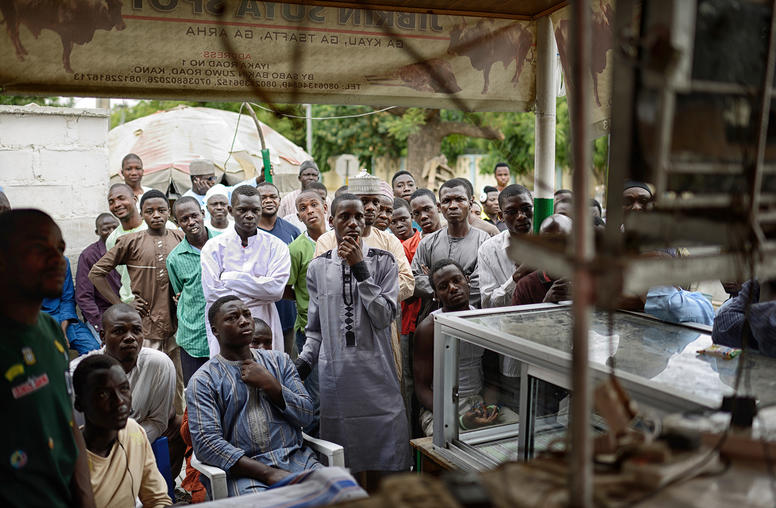
The Risk of Election Violence in Nigeria is Not Where You Think
Nigeria’s political parties are in full campaign mode ahead of national and state-level elections early next year, and unfortunately signs are emerging that election-related violence is a real possibility. It’s not too late, however, for Nigerians and the international community to take steps to reduce the risks of coercion and possibly even bloodshed.
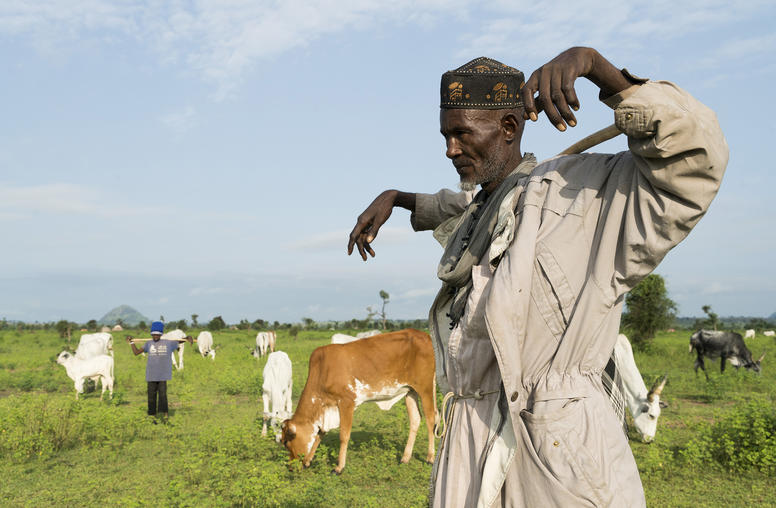
Nigeria’s Worst Violence Is Not Boko Haram
As Nigeria works to stabilize from years of warfare in its north, the deadliest threat is not the Boko Haram extremist movement, but escalating battles between farming and herding communities over scarce land and water. Bloodshed has increased since January, as armed groups have attacked and...
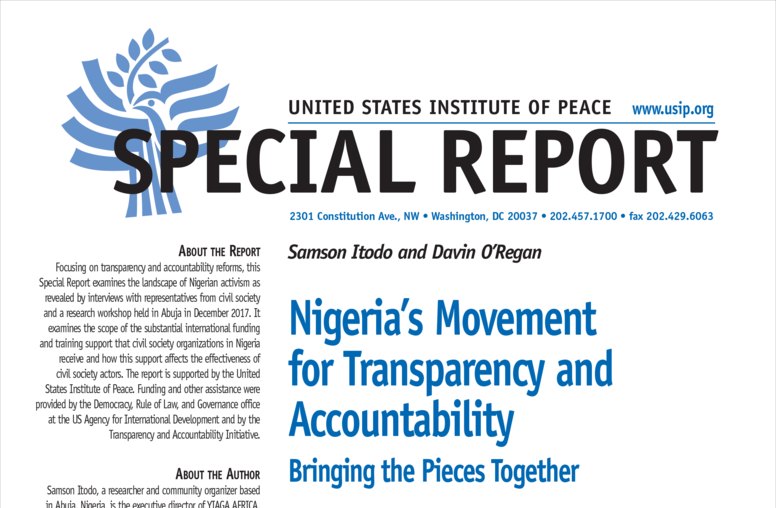
Nigeria’s Movement for Transparency and Accountability
Since the demise of its military dictatorship in the late 1990s, Nigeria has made remarkable democratic progress. Still, widespread corruption bedevils the country—which in many respects presents its biggest policy challenge and its biggest threat to stability and development. Drawing on a workshop held in Abuja as well as on...
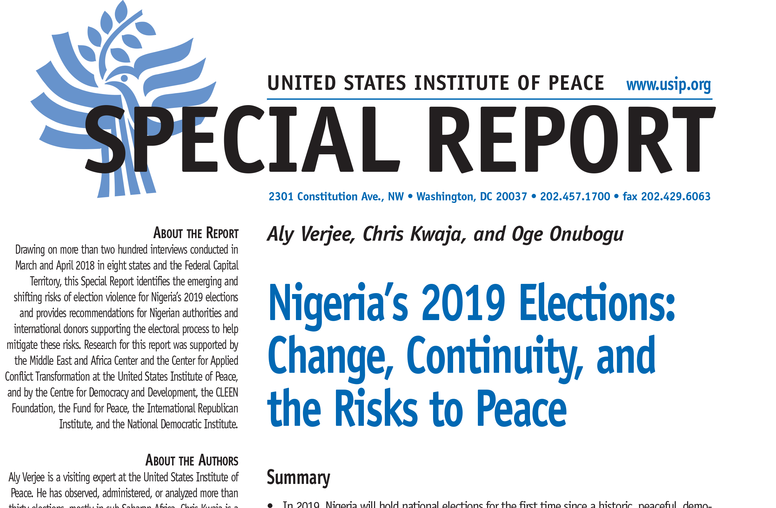
Nigeria’s 2019 Elections: Change, Continuity, and the Risks to Peace
Drawing on more than two hundred interviews conducted in March and April 2018 in eight states and the Federal Capital Territory, this Special Report identifies the emerging and shifting risks of election violence for Nigeria’s 2019 elections and provides recommendations for Nigerian authorities and international donors supporting the electoral process to help mitigate these risks.

The Risks of Violence in Nigeria’s 2019 Elections
In February 2019, Nigerians go to the polls to elect the country’s next president, parliament and state governors. Nigeria’s elections have historically been tense, and as the campaign gets underway there are concerns the upcoming process will see new violence. USIP’s Chris Kwaja, Oge Onubogu and Aly Verjee discuss the significance of the vote, what has changed since the 2015 elections, and suggest what can be done to mitigate risks of violence.
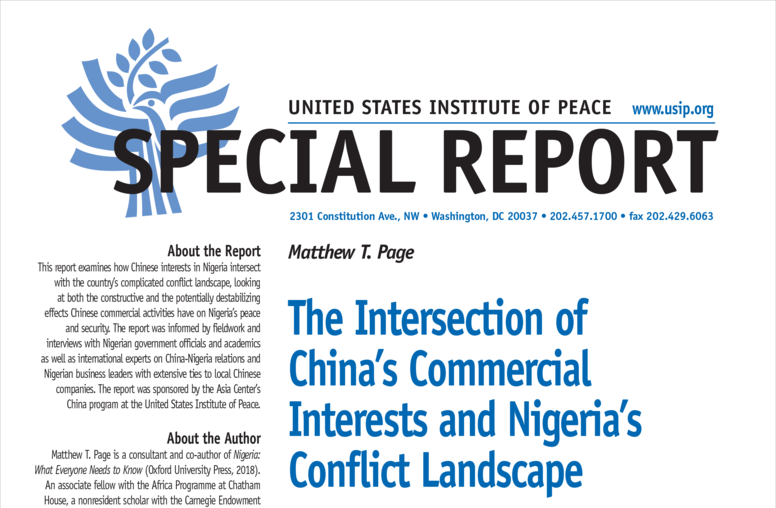
The Intersection of China’s Commercial Interests and Nigeria’s Conflict Landscape
Like Washington, Beijing has an abiding strategic interest in promoting stability and security in Nigeria—the largest economy in Africa, a major oil and gas producer, and on track to become the world’s third most populous country by 2050. Yet from the Boko Haram insurgency in its northeast to farmer-herder clashes in its Middle Belt...